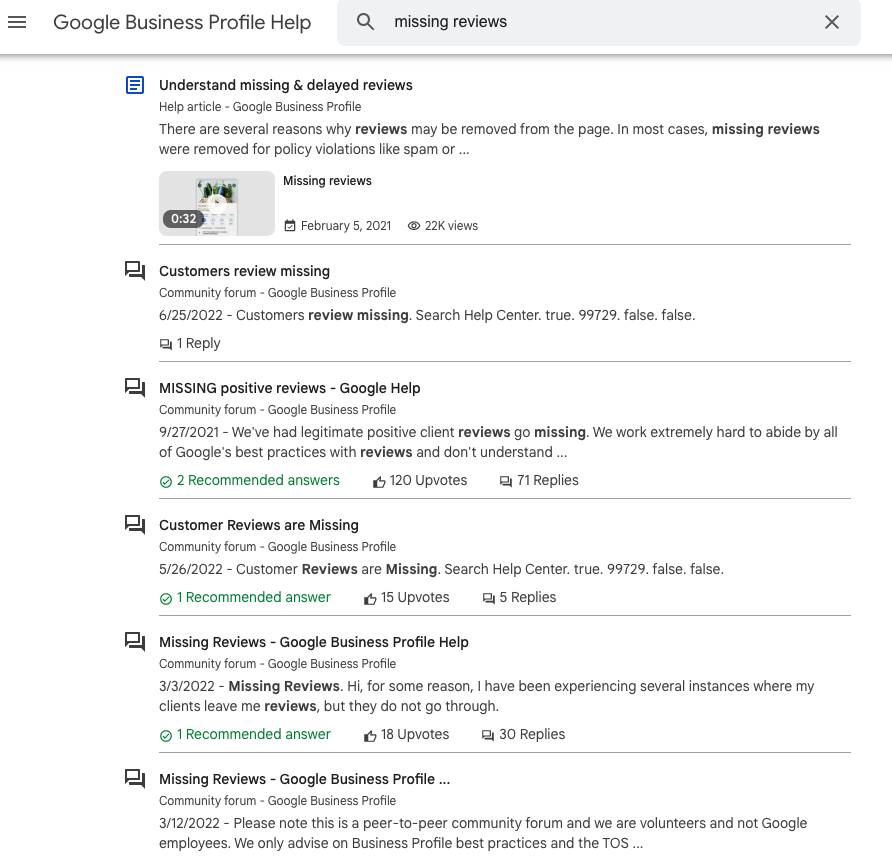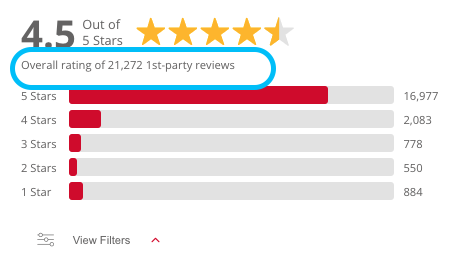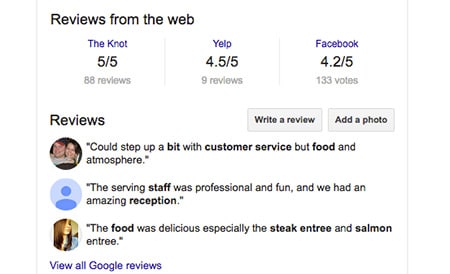Google has ramped up efforts to rid its platform of fake reviews. An Uberall study found just under 11% of Google reviews are considered fake. That number may not seem like a lot, but that equates to about 200M fake reviews. Yikes.
But in trying to clean up Google reviews, partly using machine learning, Google is also removing a fair amount of legitimate reviews. For small businesses, this can be damaging to their business and online reputation.
So what should you do if your business or a business you’re managing loses valid reviews?
3 actions to take when Google reviews are removed
1. Request the Google Reviews be reinstated.
Google removes reviews if it violates their policy. But there can also be a delay in posting a review. And in other instances Google’s AI is flagging what it thinks are violations but in reality are not. Ben Fisher wrote about this for LocalU.
There is a whole process to get reviews reinstated via Google, but others find more success going through the Google Business Profile Help Community.
Lean on the experts. People in this community who have been dealing with Google Business Profile (formerly Google My Business) for years. This is not a new problem, but one that has been growing with Google’s crackdown on fake reviews.

2. Increase your 1st-party reviews.
You might be asking, what are 1st-party reviews? Well, they’re pretty amazing. Some might even marry 1st-party reviews!
First-party reviews are reviews that you own. It’s your data collected through a process you control. You could use a platform like GatherUp, Grade.us or a Google Form you built on your own. With 3rd-party data and cookies becoming less important collecting data directly from customers is a huge business win.
The benefit of 1st-party reviews is that you own the data. No one can remove these reviews from your system. Publishing 1st-party reviews on your website has tremendous local search value. These reviews are often unique to the web, therefore providing a boost in local Google ranking.

However, follow best practices when soliciting and publishing reviews. It’s best to ask all customers (not friends and/or family) for reviews. Be fair and ethical when collecting and moderating reviews. And publish all legitimate reviews. Google and consumers believe a mix of positive and negative reviews are most trustworthy. No one believes your business has a 100% track record when it comes to happy customers…and that’s ok.
3. Diversify your review portfolio
Too much reliance, as we have seen with Google, can hurt your brand’s reputation when the platform goes down or makes large-scale changes.
Obviously Google is the largest and most valuable review engine, but having 1st-party reviews PLUS industry-specific reviews will help your brand and most importantly, reviews help conversions.
Consumers research businesses on all different sites. Make sure you have a presence on the most likely places they visit. Your customers will appreciate finding reviews across different platforms. The best tip is to ask for reviews on Google, Facebook and then 2-3 industry specific sites.
Home services, healthcare, lawyers, restaurants, insurance agents, and other categories have outstanding industry-specific sites. Find 2-3 and focus your energy there, along with Google and Facebook. Here is a great list of sites broken out by category.
Think of reviews as an investment in your brand. Similar to how you manage your financial investments it’s best to diversify your portfolio to weather any downturns. Diversification protects your brand online from changes or volatility.

Summary
Follow these three tips and you’ll weather any changes to the Google algorithm, review policies and crackdown on fake reviews. Don’t be afraid to get missing reviews from actual customers reinstated. But also don’t waste your time. It’s best to add 1st party reviews and have a diversified online review portfolio.
Your online reputation is at stake. Putting all your eggs in one basket (Google) is a scary proposition when you have little control over this user-generated information. Control what you can control. That is, ask legitimate customers for 1st-party reviews and ask for reviews on the most valuable industry review sites.